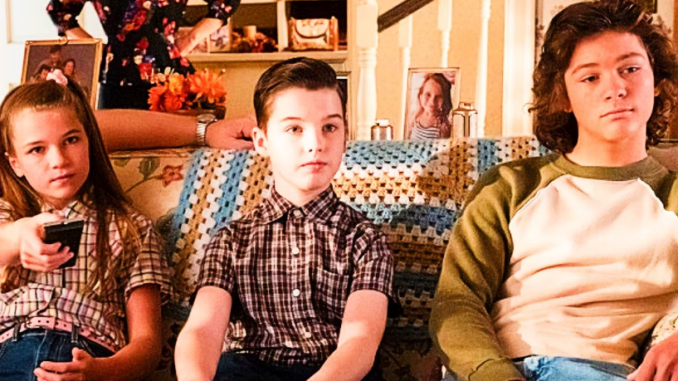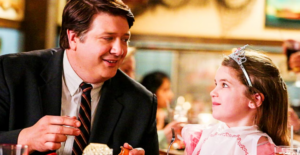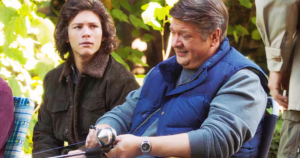
The curtains have closed on Sheldon Cooper’s childhood in East Texas. But fear not, “The Big Bang Theory” universe continues to expand! “Young Sheldon” wrapped up its seven-season run with an emotional finale that not only bid farewell to a beloved chapter but also offered exciting glimpses into the future of Sheldon and the Cooper family, both within established spinoffs and the original series.
Saying Goodbye and Picking Up the Pieces: The Aftermath of George’s Death

Following the devastating loss of George Cooper in season 7, episode 12, the first half of the finale, titled “Funeral,” explores the family’s struggle with grief. Mary seeks solace in religion, clinging to her faith. Meemaw drowns her sorrows in alcohol, while Georgie steps up to shoulder the responsibilities. Missy lashes out, and Sheldon, ever the logical one, grapples with confusion and regret.
The episode features a poignant funeral service, showcasing the significant impact George had on the lives of those around him. Notably, adult Sheldon (voiced by Jim Parsons) confesses his regret for not properly saying goodbye to his father in a flashforward sequence.
The Memoir Motive: Why Sheldon Recalls His Childhood
The finale confirms a long-standing theory about adult Sheldon’s narration. The title of the second half, “Memoir,” hints that Sheldon is crafting a written record of his childhood experiences in Medford, Texas. Whether this is a personal project or a future publication remains unclear.
Moving On, Finding Solace: Life After George

A month after the funeral, the finale picks up with the Coopers navigating their “new normal.” Each family member adopts their own coping mechanism. Mary seeks comfort in religion, attending church multiple times a week and dragging the twins along. This explains her unwavering faith in “The Big Bang Theory.”
Baptism Battles and Religious Upheaval
Mary’s newfound religious fervor extends to her children. She attempts to coerce Sheldon and Missy into baptism, hoping to “save their souls.” This religious pressure creates tension, showcasing the disconnect between Mary’s newfound devotion and the twins’ individual beliefs.
A Pasadena Update: Sheldon and Amy’s New Life
The finale offers a much-needed update on Sheldon and Amy’s life post-“The Big Bang Theory.” We learn that they’ve moved out of their iconic Apartment 4A, presumably due to space limitations for their growing family. Their new Pasadena home, a craftsman bungalow, holds sentimental value, with familiar items from Apartment 4A like the couch and the atomic structure finding a new place.
First Loves and Familiar Faces: A Nod to Georgie’s Past
Before Mandy entered the picture, Georgie had a special connection with Veronica, his first love. The finale revisits this part of his past during the family’s final dinner scene. Sheldon and Missy bring up Veronica, sparking Mandy’s curiosity. Interestingly, this conversation sparks speculation about Veronica’s potential return in the spinoff series “Georgie and Mandy’s First Marriage.”
The Pasadena Gang Reunion: A Quiet Affair
While fans might have hoped for a full-blown “Big Bang Theory” reunion, the finale only features cameos from adult Sheldon and Amy. However, the series has established that the couple remains close friends with Howard, Bernadette, Leonard, and Penny. The increased distance after their move makes hanging out more challenging, but their bond persists. Raj remains the only member of the Pasadena gang unaccounted for in “Young Sheldon.”
Young Sheldon’s Offspring: The Future of the Coopers
With “Young Sheldon” concluding, the story of Georgie and Mandy continues in their new spinoff, “Georgie and Mandy’s First Marriage.” The format shift notwithstanding, this essentially acts as a sequel series. This opens the door for Mary, Missy, and Meemaw to appear in the new show.
While their roles won’t likely be recurring, the open-ended nature of their arcs in “Young Sheldon’s” finale suggests they’ll make guest appearances to bridge the gap between the two shows and properly conclude their “Young Sheldon” storylines. After all, all three characters had significantly changed by the time “The Big Bang Theory” began.